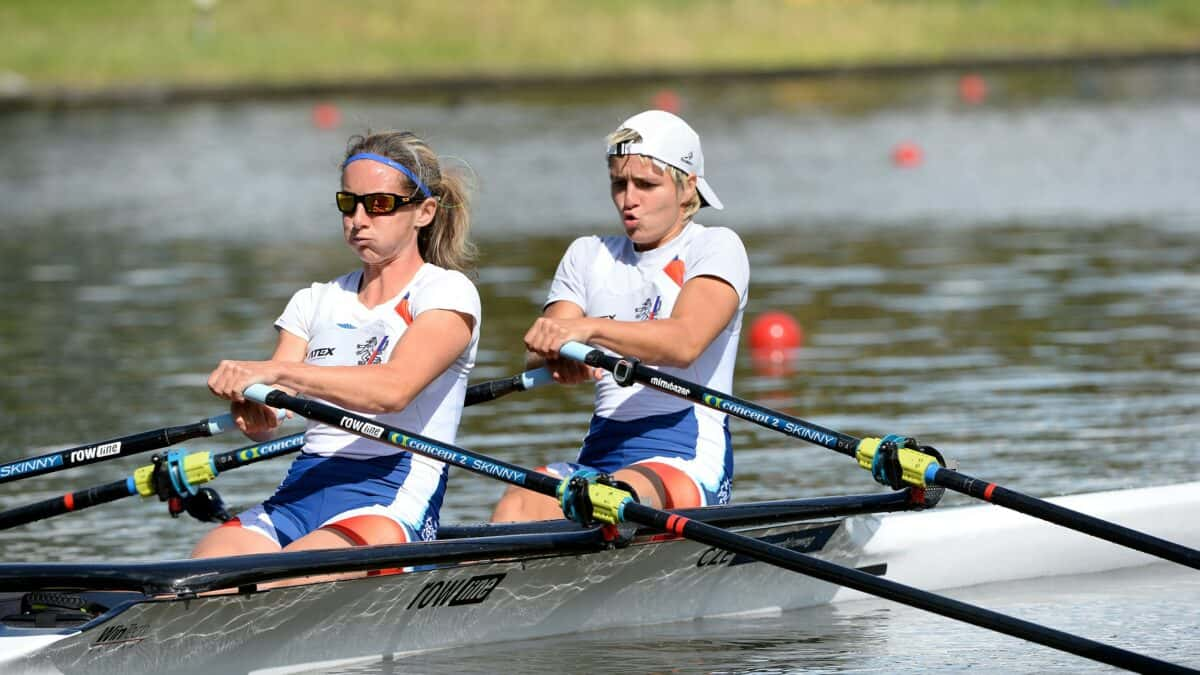
18 Jan 2021
Women’s Voices in Rowing: a powerful narrative of hope
Stories define us – so the saying goes.
When we look back at 2020, the big story in sport was one of loss – loss of predictable training due to lockdowns and social distancing; loss of an Olympic Games postponed a year for the first time in history; loss of loved ones in a pandemic that has touched us all.
Yet there are also stories of hope – hope for survival through a vaccine against this illness; hope for getting back to ‘normal’; hope that by sharing our stories things can change for the better.
In her new book “Women’s Voices in Rowing”, Daniela Nachazelova adds significantly to this narrative of hope. In a series of interviews from late 2019 and throughout 2020, the former Czech rower shares the stories of over a dozen of rowing’s most significant leaders.
World Rowing spoke with Nachazelova about writing the book and why these stories of struggle, perseverance and hope are what our sport – and society – needs right now.
Leading lights
“At the beginning, I started with a wish list of people I would like to talk to,” says Nachazelova of planning the book. “I thought, this is my dream team and if they would not be available, I would have to be realistic. Who am I, after all? I don’t have a name, English is not my first language.”
Fortunately, her fears were unfounded. “All of them talked to me; that was incredible. They were referring me to other people and they were referring me on to others. It shows how great a community we have.”
Speaking their truths
“I told each of them the same thing,” says Nachazelova, “that I was writing a book of female voices in rowing, that I felt someone should do it and that I would like to talk to them about it.
“At first, I just wanted to tell their stories, how they got involved with rowing, what their experience was, just normal stuff,” she says.
For all that, some combination of Nachazelova’ receptive listening and open-minded curiosity seems to have put people at their ease in a way that surprised her.
“On their own, they started to be really open, to talk about the gender issue, diversity, equality. And I thought, wow, they are the ones controlling how the book is going. Since they were willing to talk about these things so openly, I felt that I had to continue to ask questions.”
Breaking the silence
While the depth of openness may have shocked Nachazelova, there was – sadly –
nothing surprising in the difficult details of barriers and burdens that women have universally faced to one degree or another in the pursuit of high performance sport.
One point that the book addresses is that the issue of safeguarding is about more than just women’s equality. It is about protecting everyone in sport.
Encouraging people to speak up about difficulties, however, means providing a platform as well as a pathway with next steps for resolution. “We need an outside push,” she says. “It starts with the leadership. Hopefully more and more countries will include safeguarding in their agenda.”
“It is a huge step that people are talking about it,” she adds, pointing specifically to World Rowing’s recently introduced Safeguarding Policy. “If you take step A by talking about things, then you must get ready for steps B and C.”
“There is something called the ‘spiral of quietness’ when people are not able to speak up and control their own narrative. Many athletes are not even aware that they [have a voice and a right to speak up].”

Stories to inspire
For Nachazelova one part of this process is that athletes must be brave and tell their stories, but equally that their voices be respected and the problems they face be dealt with head on.
“Stories can help to make things more accessible,” says Nachazelova, who hopes that women and other historically marginalized groups can find not just inspiration, but a sense of solidarity in the stories of those who have come before.
Even with all the supports of a working safeguarding policy in place, “it is about having an athlete who is brave enough to step up,” she says. “It is about speaking your own narrative and not letting others decide it for you.”
It is something captured so well in the words of professor and five-time New York Times bestselling author Brené Brown when she said, “Owning our story and loving ourselves through that process is the bravest thing that we will ever do.”

